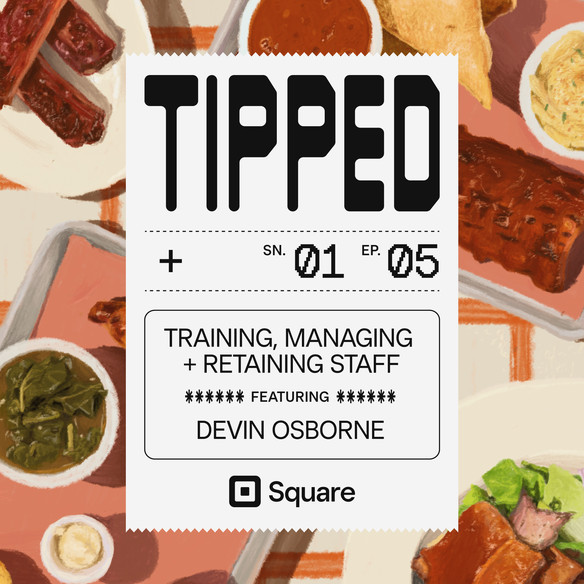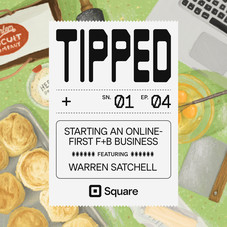Table of contents
Fatback’s BBQ in Quincy, IL, started as a family business and over the years it’s remained a family business, but their definition of family has changed. Today, their staff is family and they are respected and valued as such.
Fatback’s owner, Devin Osborne, doesn’t see his staff as just labor and he knows the importance in investing in the individual members of his staff to not only retain them, but to make sure they feel valued and excited to show up to work everyday. “We try and give very flexible schedules to all of our workers. that’s one of the things that one of our core principles that we advertise flexibility, if we have a student in high school or college, we were very flexible around allowing them to take whatever time they need to go to their event to go to their class or their school practice.” explains Osborne when describing how Fatback’s respects employee’s lives outside of work. “What that does for them is it allows them to live their life, but also work within us. They have a lot of respect for us because we show respect for them.”
With staffing and labor costs being top of mind for food and beverage businesses everywhere, Devin shares his best tips for how to train and retain staff to ensure they are happy and excited to deliver the experience that your customer’s expect.
3 Tips From Devin Osborne of Fatback’s BBQ on how to find, train, and retain staff.
- Always remember that your staff is the face of your business: “When it comes to contributing a really positive experience for the community, you definitely have to have a staff that’s friendly, that’s kind, that’s willing to be serviceful”
- Always make sure your employees know how valued they are: “Balancing your staff experience and your customer experiences, most of all, is the pinnacle of being a business. It’s obviously a customer first business, but at the same time, if we don’t have the staff that supports the customers, then we can’t have either. And we view them through the same eyes. We have to please our staff members and sometimes that means we can’t do events that we would really want to because it just doesn’t work out for our staff and it would add too much strain on them. It’s through ways like that, that you can help retain your employees, balance their schedules within your own, and then also be very servant leaders for your customers as well. “
- Invest in cross-training your employees: “Our employees are multitaskers and this helps keep labor costs down. This helps keep employee schedules flexible because the more people that can fill in the more that we can trade them and swap them out in situations and scenarios. And overall, this just helps the conception of our business run smoother since everyone knows kind of a little bit about each station.”
Full Transcript
Hi, and welcome to Tipped, a Square podcast. While the rest of the world has adjusted to new protocols and returning to a new normal, the restaurant industry is still faced with challenges the pandemic brought with it, particularly when it comes to staffing shortages and employee retention. And according to the 2022 State of the Restaurant Industry report from the National Restaurant Association, more than half of restaurant operators believe it will be a year or more before business conditions return to normal, with one of the dominant factors being labor costs. A new Square restaurant staffing report also found that workforce shortages are having a negative impact on top line growth.
Devin Osborne: Staff retention is one of the things that many managers often have nightmares about, if you will.
That’s Devin Osborne, owner of Fatbacks BBQ, a laid back barbecue joint.
Devin Osborne: We ended up starting our business around a decade ago at this point, it was June of 2012. And around that time, it was initially an idea that we had for our family. And it was a way for us to do the things that my mom and dad had thought were fun. Oftentimes, we competed in barbecue competitions on the weekends and throughout the summers. And we decided after catering for a little while that we could possibly make this real thing and take it to the next level.
So out of that birth, our restaurant, which we’ve been 10 years strong and currently, and we’re still going hard every day. As time has progressed on, we’ve become much more of a staple. And so coming on this 10 year mark now, which even seems crazy for me to say, because oftentimes it doesn’t feel like 10 years. But now the vast majority of people in the community are able to recognize us and our business. And even if they may not come to our business every day, it’s something that they can recognize, it’s a brand that they know, it’s a product, it’s a quality that they would look for. And that’s something that we have strived for since the beginning, is something that would be helpful and beneficial for the community.
Devin says that community cannot only play a huge role in the success of your business, but also the ultimate happiness of your employees as well.
Devin Osborne: I think really becoming a part of the community is something that takes more effort than just creating a product. When you sell something online, or even if it’s a self-service product, being a part of that community, it takes deliberate action and deliberate engagement with all the people around you. So it would be … Some of the things we would do is showing up at school events, going out to catering events, being active in the event communities around our city. Sometimes we would set up food trucks and tents, and really the majority of how we did it was interacting on a daily basis with each customer that pulled up to our doors and decided to have a meal with us. So having that conversation and community, I mean, people are literally walking into your business. So that’s a huge advantage that you have to monetize and also to spread your purpose for the community. So I would say that the best ways that we grew were through knowing people and getting to know them and their story, and then them acting in our lives and getting to know us.
When it comes to contributing a really positive experience for the community, you definitely have to have a staff that’s friendly, that’s kind, that’s willing to be serviceful. We talk a lot about in our company and our daily lives, being servant leaders. Initially we had a lot of our family running our restaurant and it was solely family. As the years progressed on, as they say a lot of times, family businesses struggle quite a bit and we were no exception. So over time, a lot of the family started to fade out of it and it became more of a refined family that currently works there. And we also have additional staff hired on since probably eight, nine years ago. And ever since then, it’s making that staff, not just calling it a name label of yeah, we’re family here, but making it a point to enjoin them into our family.
Because what we preach and what we teach is kind of a culture of, again, servant leadership and loving one another. And that goes for the customer and being kind. We don’t think anybody should have to be served or pay for items that oftentimes cost an egregious amount of money for someone, and then be served in a malicious way or in a lesser than desired way. And so the way that we ended up affecting our community so much is really just making sure that our staff, at all times, and we have mess up, but at all times that we can, are treating our customers well and making sure that they understand what the customer’s desires are as well as serve them well.
With staffing shortages affecting the food and beverage industry, Devin says making sure employees feel valued and have flexibility in their schedules is key to employee retention and satisfaction.
Devin Osborne: Staffing right now is an incredibly hot topic. But more importantly, it is incredibly difficult. It’s something that we have struggled with for years. I would say it’s been a struggle for at least the last six, seven years on a very predominant front. However, with the introduction of COVID-19, that just accelerated these things at a much more dramatic pace. And that happened in a couple of parts. One part was that businesses typically, if you were lucky enough, we were fortunate enough to have this happen where our business exploded. And so we had an immense amount of community support behind us, but we were serving at four times what we were even on a normal busy day. It was absolutely insane.
However, the flip side of that was during COVID you had less workers, or even trying to keep those workers where you were, you might have to deal with sicknesses, shutting down, all these crazy things that were happening. But now that we’re post COVID, it seems that the world and the gig economy that we live in is enabling sort of this culture of allowing more flexible work schedules. I think that balancing your staff experience and your customer experiences, most of all, the pinnacle of being a business, it’s obviously a customer first business. But at the same time, if we don’t have the staff that supports the customers, then we can’t have either. So one of the ways that we often keep our staff and our customers in line is we look at them in the same ways and we view them through the same eyes.
We have to please our staff members. So sometimes that means we can’t do events that we would really want to, but it just doesn’t work out for our staff and it would add too much strain to our business. We had a catering offer come up and it was to cater seven weddings within about two month’s time. And unfortunately we don’t have the staffing for that right now. And so that was really not something we wanted to lose out on, but for the sake of the business, and for the sake of our daily customers, that’s something that we had to really consider and think about. And ultimately, we decided not to walk forward with that opportunity. And I think it’s through ways like that, that you can help retain your employees, balance their schedules within your own, and then also be very servant leaders for your customers as well.
Devin says that when it comes to training employees, patience, guidance, and most of all, encouragement go a long way.
Devin Osborne: I think the training is something that can oftentimes be much of an art and a science, but our employees are multi-taskers. This helps keep labor costs down, this helps keep employee schedules flexible because the more people that can fill in, the more that we can trade them and swap them out in situations and scenarios. And overall, this just helps the conception of our business run smoother since everyone knows kind of a little bit about each station and they definitely know a lot about three or four stations. So even if they don’t know exactly what’s going on, they have something in their head that was always working.
I think that is an important point to make again, too, is playing into their strengths. I just keep reemphasizing this point. Oftentimes they come in with no skill at all. And so they don’t know what their strengths are even to begin with. And so it’s basically a discovery for them while you’re discovering them yourselves. And so that’s one of the best points that you can make a lot of influence into their lives and then guide them to the person that they can start to become.
With staffing shortages being a major area of concern for restaurants, Square in partnership with Industry Dive surveyed restaurateurs to hear directly from them, how staffing and other issues have affected their business, what they’re expecting in the future, and what tools and solutions they need as they navigate the current challenges they’re facing.
Devin Osborne: We ask Square business owners to submit their most pressing questions to our featured guests. Today’s question asks, “What are ways to help with staff efficiency in a high labor industry? Our food costs have always been low, but our labor has been high as we make everything from scratch. How can we incentivize productivity for our staff?.”
We try and give very flexible schedules to all of our workers. That’s one of the things that … One of our core principles that we advertise: flexibility. If we have a student in high school or college, we’re very flexible around basically always allowing them to take whatever time they need to go to their event, to go to their class or their school practice. And what that does for them is it allows them to live their life, but also work within us. And because of that alone, they have a lot of respect for us because we show respect for them. This isn’t some kind of amazing magic trick, golden rule, but it has worked effectively for us. And that’s a primary reason that we can keep a lot of our staff and we don’t have turnover week to week.
We asked Devin to pass on the best tips he’s learned from his experience in the food and beverage industry.
Devin Osborne: I probably have a couple piece of advice and I’ll start with the first one being that create a great product. Oftentimes I find a lot of restaurants that don’t necessarily have a spectacular product. A lot of their food may just be completely processed, very easy, and it’s very revenue generating. And I think there’s a time and place for businesses like that. But especially if you’re starting your first restaurant and you’re just leaping out there, I would not encourage the restaurant industry for people who just want to make quick money and start making fast dollars. Because it’s kind of a long and arduous road, especially if you don’t have a lot of capital. So the first principle would be really creating a great product.
Once you have that great product, I think you have a lot of leverage because you have one leg up on everyone else. With that great product, people will come back. That’s the first step. As long as it’s good, they can have a bad experience, but they will come back at least probably three fifths of the time. Somebody once had told me in a lot of my marketing classes and experience that, “If you set yourself on fire, people will come for miles to watch you burn.” And that has kind of always stuck with me and stuck with us.
And so oftentimes what I tell people when they’re starting out is if you don’t have business and you’re wondering why people aren’t paying attention, they just need a fire to look at. And when you can find something about your business, a quality, a feature, a talent that you guys have that is something like burning, on fire, something that you guys are that is different, that’s unique, that people like to watch, really just exploit that as much as you humanly can. Because people will always come back to watch that. I’m always very excited to see other people prosper as cynical as this world can sometimes be.
Thank you to Devin Osborne for his time and insights for our show today. Devin is the owner and founder of Fatbacks BBQ located in Quincy, IL. Find them at Fatbacks Barbecue on Facebook, give them a follow or send them a direct message to learn more. If you want to hear more like this, make sure to subscribe to Tipped on Apple Podcasts, Spotify, or your podcast app of choice. You’ve been listening to Tipped, a Square production. This episode was produced by Kaitlin Keefer and Clara Shannon. Our music was composed by Jordan Wallace with sound recording by Sorrentino Media and D.R. Baker. Thanks for listening.
![]()










